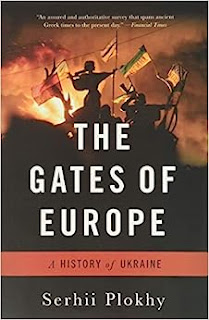from The Gates of Europe: A History of Ukraine by Serhii Plokhy:
The famine produced a different Soviet Ukraine. Stalin managed to keep it in his embrace by purging the party and government apparatus of those who would not go against their own people and take the last food supplies from the starving: of more than five hundred secretaries of district party committees, more than half lost their positions in the first half of 1933, many of them arrested and exiled. The rest would toe the party line no matter what. Those were the cadres Stalin wanted to keep, at least for the time being. He also got a new “socialist” peasantry. Those who survived the famine had learned their lesson: they could survive only by joining the party-controlled collective farms, which were taxed at a lower rate and, in the spring of 1933, were the only farms to receive government relief. The collectivization of the absolute majority of households and land, now an accomplished fact, dramatically changed the economy, social structure, and politics of the Ukrainian village.
Was the Great Ukrainian Famine (in Ukrainian, the Holodomor) a premeditated act of genocide against Ukraine and its people? In November 2006, the Ukrainian parliament defined it as such. A number of parliaments and governments around the world passed similar resolutions, while the Russian government launched an international campaign to undermine the Ukrainian claim. Political controversy and scholarly debate on the nature of the Ukrainian famine continue to this day, turning largely on the definition of the term “genocide.” But a broad consensus is also emerging on some of the crucial facts and interpretations of the 1932-33 famine. Most scholars agree that it was indeed a man-made phenomenon caused by official policy; while it also affected the North Caucasus, the lower Volga region, and Kazakhstan, only in Ukraine did it result from policies with clear ethnonational coloration: it came in the wake of Stalin’s decision to terminate the Ukrainianization policy and in conjunction with an attack on the Ukrainian party cadres. The famine left Ukrainian society severely traumatized, crushing its capacity for open resistance to the regime for generations to come.

No comments:
Post a Comment